TruthFinder Reviews
Pros
-
Quality of reports
-
Fast searches
-
Ease of use
-
Dark web monitoring
-
Diverse search methods
Cons
-
No single-purchase reports
-
Separate subscriptions for alternative searches
-
Extra fees for downloading reports
Having been in the business since 2015, TruthFinder is well versed in running background checks on U.S. residents. The service scans private and public records, gathers people’s data, such as their social media profiles, location, and criminal records, and compiles it into easy-to-read reports. TruthFinder’s diverse search methods allow users to look for information about someone by filling in their full name, phone number, email, or address. The results from these searches are data-rich and well-organized in reports, which can be accessed from computers and mobile devices. Prices start at $4.99 per month for phone reports and at $23.28 for people search reports.
17% off TruthFinder*
Subscribe to TruthFinder's People Search plan and get 17% off when paying two months in advance, which equates to $23.28 per month.
Save $4.70 on TruthFinder
Features
TruthFinder runs sophisticated background checks using a person’s full name. Alternatively, their phone number or email can be used with the Reverse Phone Lookup and Reverse Email Lookup, respectively. Both types of searches are helpful in looking up someone’s data when information about their name is incomplete or unknown. Furthermore, all reports are grouped in search categories and are easily accessible.
Another noteworthy tool is dark web monitoring, which scans the dark web to ensure users’ identity isn’t compromised. The search algorithm monitors thousands of data points, looking for personal information that may be on hidden forums. Customers choose which information should be tracked and receive an instant notification if it turns up on the dark web, helping them stay a step ahead of credit card fraudsters and identity thieves. Additionally, TruthFinder has a dedicated mobile app available on iOS and Android systems, and its layout is adapted to perform searches and view complete reports on a smaller screen.
Reports
Report types
| Criminal records | |
|---|
| Sex offenses | |
|---|
| Bankruptcies | |
|---|
| Court judgements | |
|---|
| Marriages & divorces | |
|---|
| Birth records | |
|---|
| Genealogy records | |
|---|
| Social media profiles | |
|---|
| Tax liens | |
|---|
| Assets | |
|---|
| Report clarification | |
|---|
Show all
TruthFinder collates relevant information from federal, state, and local government sources and categorizes it into distinct sections, making it easy to absorb. Furthermore, a timeline displays report highlights in chronological order from birth to the most recent data. Then, the report shows personal details, such as full name, birth date, aliases, job and education history, and more. The dashboard also lists the subject’s relationships like friends and family, on whom you can quickly start a new background report by expanding the menu. Phone number and email are shown next in the contact section, followed by the subject’s location history, which displays several maps pinpointing the places they’ve lived.
Then comes the criminal section that tackles any potential crimes committed by the subject, detailing the nature of the offense. The next section of the reports highlights the subject’s latest posts and tweets, if a corresponding account has been found. Users can also check the subject’s business affiliations and employment history in the business section. This is followed by the licenses section, which contains license data that may include FAA pilot licenses and DEA licenses for prescribing controlled pharmaceuticals. Bankruptcies and liens are featured in the finances section. Finally, the report concludes with details of the subject’s assets, like properties and vehicles.
It’s worth mentioning that the People Search plan allows users to look for a report using an address. The report contains a section that shows any known sex offenders in the area, offering a convenient monitoring tool that sends alerts when new offenders are associated with the zone, which is perfect when looking an area to rent or buy a house. Unfortunately, the Reverse Phone and Email Lookup plans aren’t as detailed as the People Search subscription, not covering facts like birth information, assets, and criminal records.
Searches
Search options
| Address lookup | |
|---|
| Phone number lookup | |
|---|
| Email lookup | |
|---|
| City, state | |
|---|
| Age, birth date | |
|---|
Show all
Depending on their chosen plan, customers have up to four search options. For people searching, the subject’s full name is required to run a background check, with the possibility of adding the city and state of residence to further refine the results. This plan also allows users to search for someone by providing their address, which requires street, city, state, and zip code. Alternatively, the other two options are to look someone up via their phone number or email address, which is helpful when the subject’s name is missing. Unfortunately, these last two options require separate subscriptions. The searches usually only take a few seconds, depending on the amount of data available on private and public records.
Ease of use
Platform support
|
Web app
|
|
|
Mobile optimized
|
|
|
macOS
|
|
|
Linux
|
|
|
Android
|
|
|
Windows
|
|
|
iOS
|
|
Show all
TruthFinder‘s page is uncluttered, and the search box highlighted in the center keeps things streamlined. When logged in, navigating the report is a pleasant experience due to the user-friendly nature of the dashboard. Major categories can be quickly jumped between, as the information is organized clearly. Previous reports can be easily accessed by clicking the button on the top left of the page. TruthFinder relies on drop-down menus, sliders, and graphic icons to keep things compact but understandable. Another point worth considering is that the website is optimized for browsers on mobile devices, and the report categories menu is adapted and works well. The dedicated mobile app also delivers a satisfying user experience, making it possible to search and look through the reports just as intuitively as it is on a bigger screen.
Data reliability
TruthFinder pays fees to access third-party databases, where billions of public records are stored. From these collections, it withdraws data about U.S citizens and organizes it into digestible reports. Its data sources include federal, state, and county records, as well as other publicly available information platforms like social media and websites. This means that TruthFinder’s data is as reliable as the data in these public spaces, so there may be cases where it’s unavailable or not up-to-date.
The company emphasizes that its service should be used for looking up neighbors, friends, online dates, or checking someone’s criminal background. However, it warns users that the reports are ill-suited for screening future employees or tenants, making decisions about consumer credit or insurance, or any other purpose that would require compliance with the Fair Credit Reporting Act (FCRA). The company is crystal clear about these terms, reinforcing that it does not provide consumer reports and is not a consumer reporting agency.
Security and privacy
The service uses industry-standard 256-bit encryption to protect users’ personal information like email and credit card details. It also has a verified and approved SSL certificate, which keeps online transactions confidential and secure. TruthFinder promises not to log credit card details on its servers, delegating the task to a PCI-certified partner. This ensures that information won’t be compromised should the company be hacked.
It’s a shame that, according to its Privacy Policy, the platform may share personal information with advertisers and other parties. For example, financial information may be distributed to business parties to assist in performing core services. However, the company does have a DMCA policy, so users can request their data not to be shared. Additionally, customers can be at ease knowing that TruthFinder won’t notify the person being searched and that they can remove their own information from the system. There are three ways to opt out: online, phone, and email.
Pricing
Pricing
| Subscription available | |
|---|
| Complete background check report | |
|---|
| Nationwide criminal reports | |
|---|
TruthFinder‘s plans are categorized by types of search. The People Search – the most complete regarding the quantity of data provided – costs $28.05 per month, or $23.28 per month when paid two months in advance ($46.56 in total). At $4.99 per month, the Reverse Phone Lookup is the cheapest option, but important data like criminal records are left out of this plan. Finally, with the Reverse Email Lookup, users can search using email addresses for $29.73 per month. Similarly, some meaningful data will also be absent with this plan.
Reverse Phone Lookup
$4.99/mo
Billed every 2 months
Unlimited phone reports
–
–
–
–
People Search
$23.28/mo
Billed every 2 months
–
Unlimited person reports
Unlimited location reports
Report monitoring
–
Reverse Email Lookup
$29.73/mo
Billed every 2 months
–
Unlimited person reports
–
–
Unlimited email reports
Purchasing a single report isn’t an option. However, when carrying out a search, the system directs users to a checkout page to get a subscription and see the results. Additionally, for a one-time fee of $3.99, users can download the reports in PDF, and the Dark Web Monitoring tool costs $2.99 per month. Payments are made via Visa, Mastercard, and PayPal.
Payment options
|
Visa
|
|
|
Mastercard
|
|
|
American Express
|
|
|
Discover
|
|
|
PayPal
|
|
|
Wire transfer
|
|
|
Check
|
|
|
Cryptocurrency
|
|
Show all
Customer service
Customer support
|
24/7
|
|
|
Live chat
|
|
|
Email
|
|
|
Phone
|
|
|
Community
|
|
|
FAQs
|
|
|
Video tutorials
|
|
|
Remote desktop
|
|
|
Blog
|
|
|
Facebook
|
|
|
Instagram
|
|
|
X
|
|
|
YouTube
|
|
Show all
The company’s efforts in maintaining strong customer relations were acknowledged by the Better Business Bureau with an A+ rating. For online help, users can send a message request from the site’s contact page or send an email. By phone, the staff is available from 7 a.m. to 4 p.m. on weekdays (PT). Even though there’s no online chat, the FAQ page is an excellent source of knowledge, explaining how to use the platform, account settings, cancellation and opt-out instructions, as well as its legitimacy and security. Additionally, the site has a blog page named Infomania, where it shares several helpful articles about its various features and multiple ways to use them.
Bottom line
TruthFinder is a leading force in the background check industry. The service offers multiple search methods, quality data collection in just a few seconds, and a compelling presentation of information. This covers all the aspects expected from a public record aggregate site, but TruthFinder exceeds this with its fast searches and organized layout. The ease of use in the web and the app versions, along with the site’s explanations and articles, are noteworthy advantages. On the flip side, some of the downsides include the inability to get single reports, the need for different subscriptions to perform phone and email searches, and the extra fees charged for downloading.
*Your membership will automatically renew every 60 days unless you cancel before the start of the next term. TruthFinder will charge the recurring membership fee of $46.56 to the same payment option you use today until you cancel.
Why you can trust us
The Best Reviews team researches and tests all products first-hand. We've been reviewing products
and services since 2012 and are proud to only publish human-created content.
Alternatives to TruthFinder





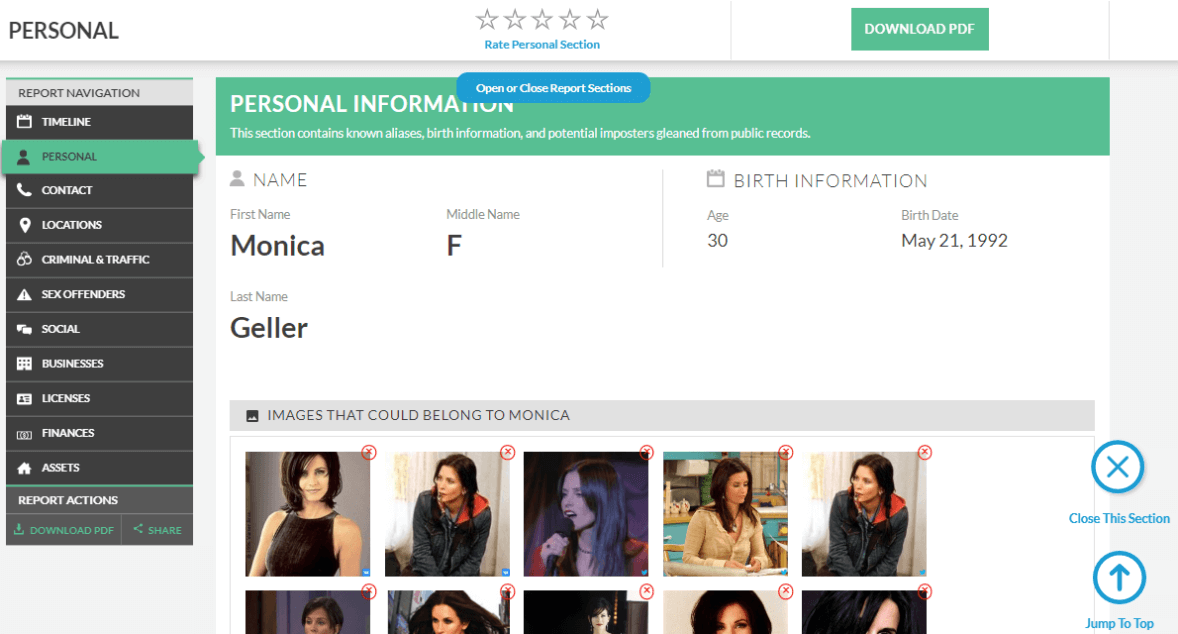
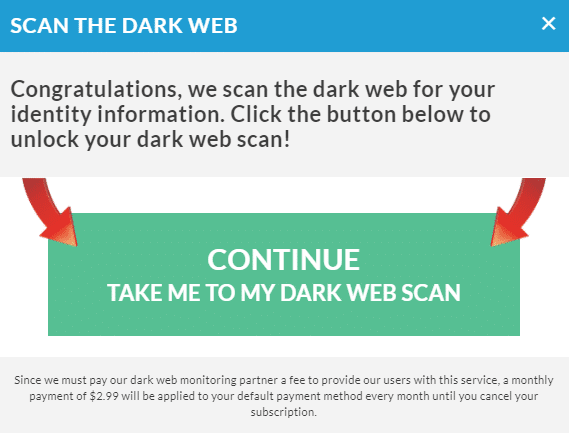
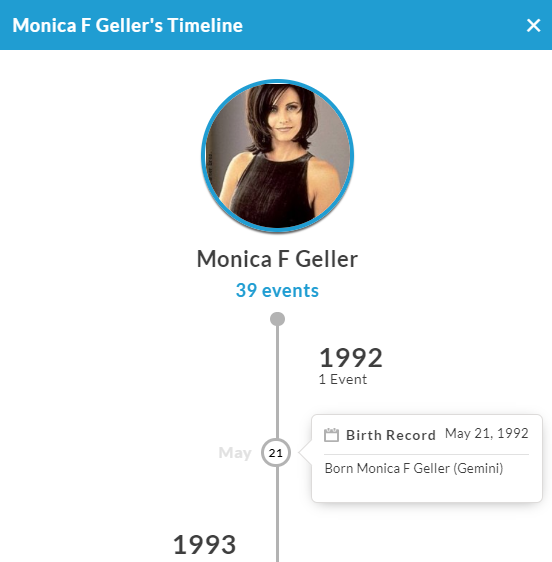
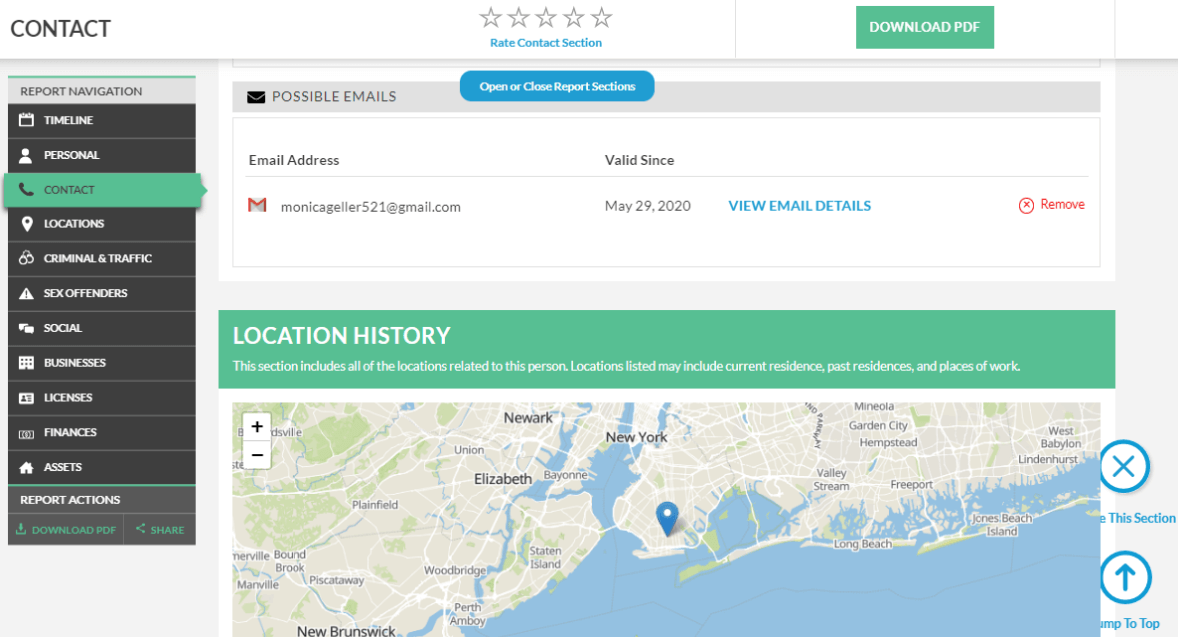
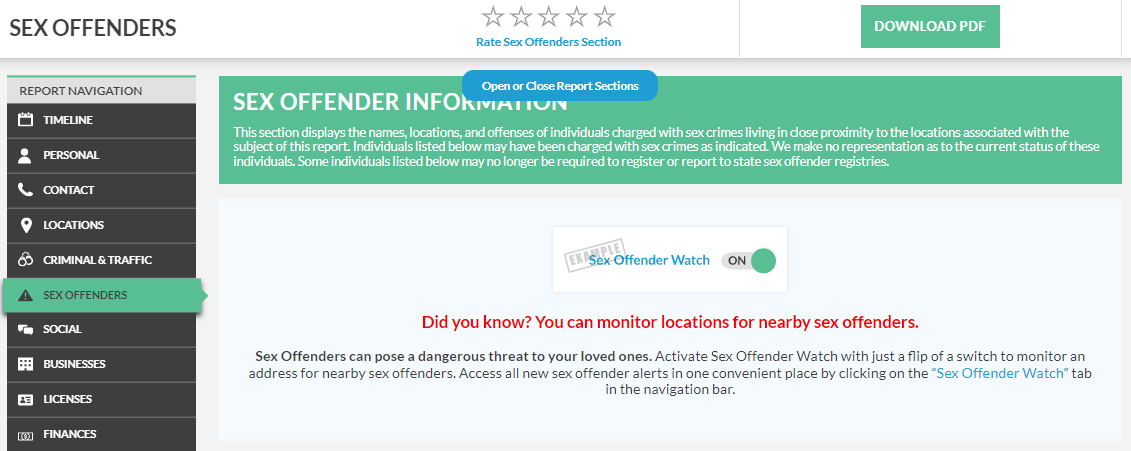
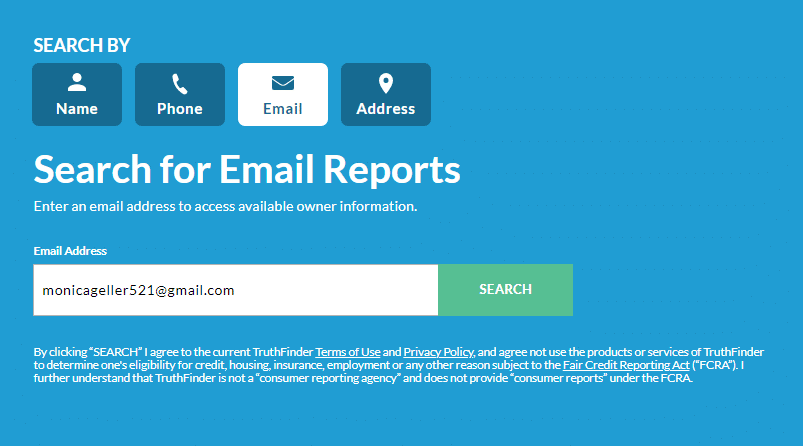
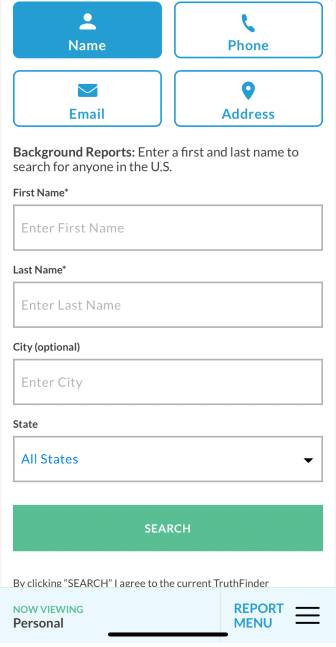
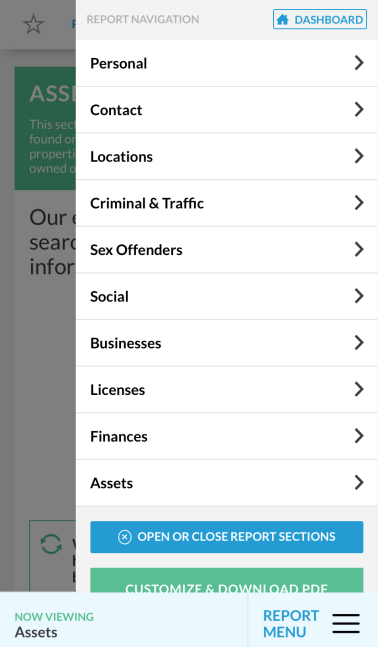
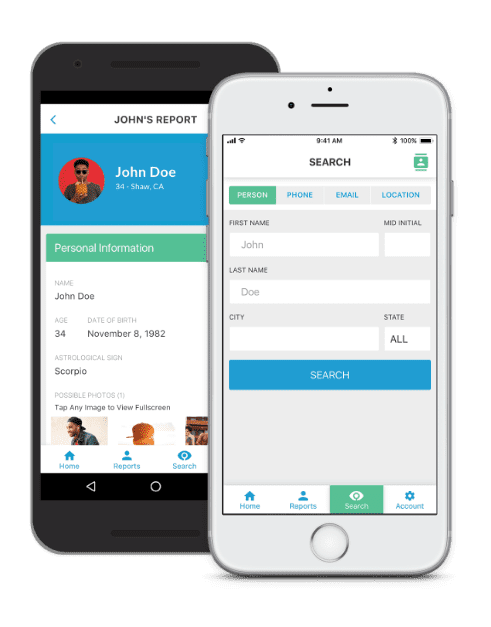

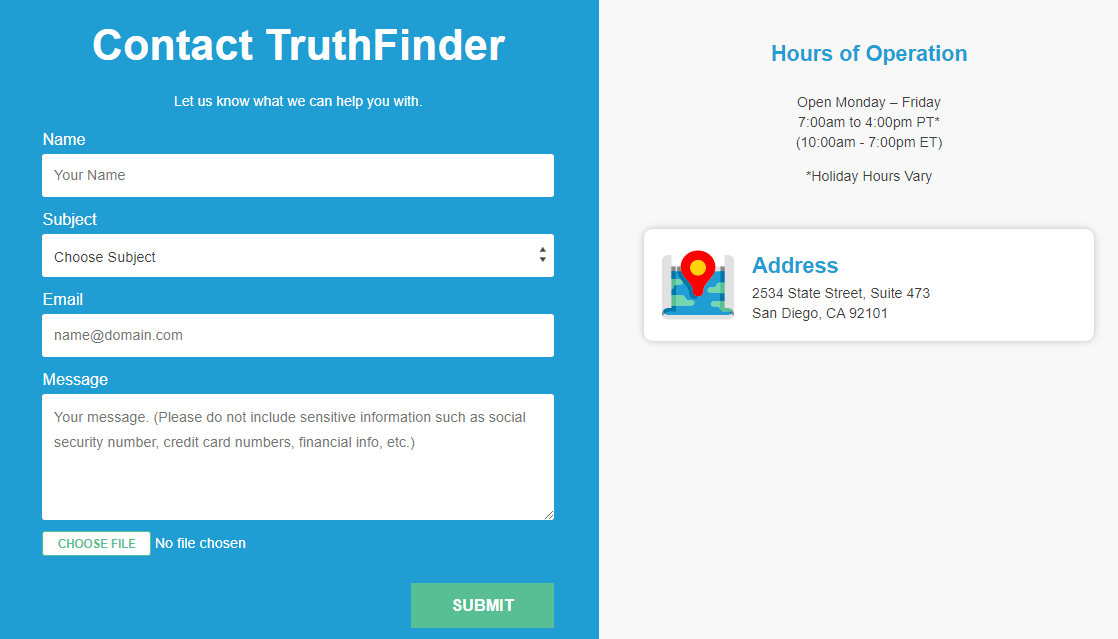
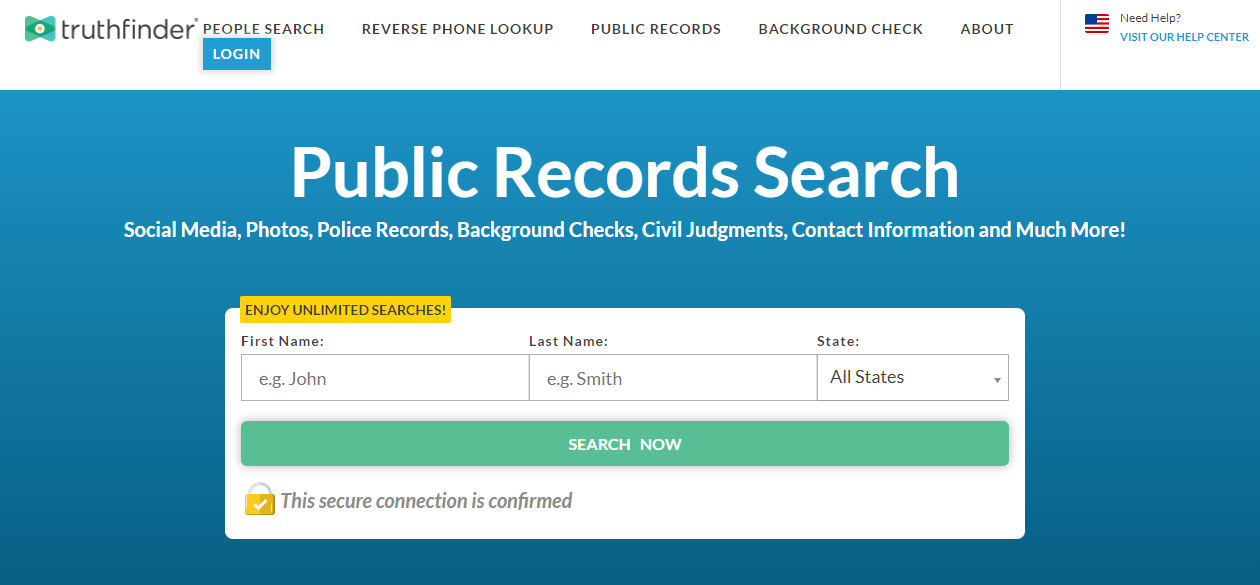
User reviews